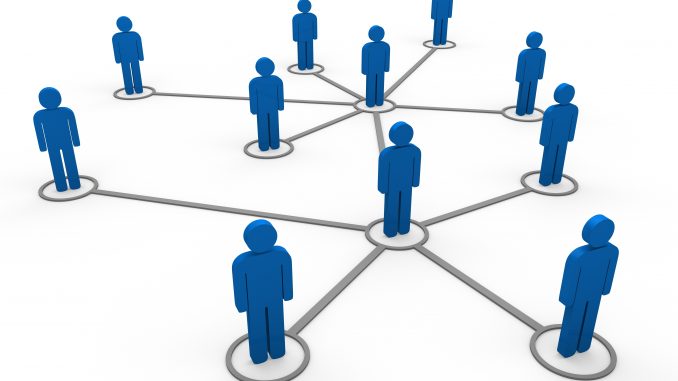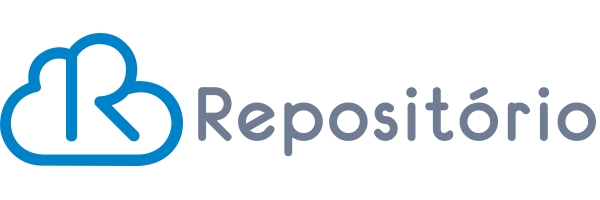
Many people complain a lot about the effectiveness of social networks. What’s up about it? Do they really work for good networking or not?
Let’s start by doing some self-assessment. It is important for you to understand why your social networking is bad.
- When was the last time you’ve contacted an old colleague to find out how he is?
- When was the last time you’ve clicked on a link shared by someone and commented it later?
- When was the last time you’ve shared something with your friends? What did he write to them?
The answers must have been: “long ago” or “never”. One more detail: Share or react to the internet meme does not count. Everyone ignores memes. Chances are that only the most annoying guys on your network flood your timeline with it. They get some nice ones, but because it is more statistics than everything…
You do this. Chance that everyone in your network, too. So it’s news that your habits are among everyone’s? The problem starts with…
Thought of being the best Cookie in the Jar
People who most complain about networking are usually people who do the least or do not care about networking. They only like what is mostly liked, they access or enjoy what was already old, but very accepted. They do not risk taking a first step. They do not cure other people’s content. They do not expose themselves. When life forces them, they are the first to search the ignored network of contacts for help, guidance and so on.
Firstly of all, the junk amount in each social network far exceeds the space of a daily timeline. One person does won’t have content from all posts from all contacts on a day’s timeline, so chances are that few people will actually read a post by an occasional guy.
People do not do that. People do not give a little to others content, people do not share your ideas and people do not interact. Often because people do not like to expose… And I’m really sorry for these people.
I’m sorry because they got it all wrong.
Networking basically was made to expose. So on what planet does the behavior to avoid exposure will generate exposure? Yeah. Then networking fails, there is a cognitive dissonance resolved with “the problem is the others”.
Of course: they do not appreciate your greatness…
Exposure in social networks
I used to think that is not good to expose yourself on social networks. I changed my mind as I began to use the tool the right way. I never liked having hundreds of contacts. And that was, unintentionally, a good thing.
Interestingly, I started the Repository with a very weak network in terms of social networking, but rather strong behind the scenes: my teams have always had an opening door to talk to me and it was never uncommon when one of them comes in contact. Many of them also enjoy my publications. Why? Because I invest time on them. I never left unanswered emails from my peers. The same with Skype, text messaging, whatsapp… That’s networking.
And in social networks, it’s the same thing. Only that it is a lot more open.
Your behavior will dictate how much you will expose yourself, but that is not the most important. The most important is WHAT you are going to expose to WHOM.
Your contacts are everything.
People you should keep
Who does not want to network won’t do. Simple. So how do you decide who to stay in your network? List of requirements:
- People you care about, who enjoy what you share. That interact. (Be gentle, do your part and interact back)
- People who will speak well of you
- People that interests you (either by content or personal history)
- Pet contacts (those you have because you like them. Like those that add Zuckerberg on Facebook)
You should not have:
- Fakes
- Spammers
- Zombies
- Breakdowns
- Celebrities
The issue of zombie contacts
Having +500 contacts on LinkedIn does not helps on anything. Having a pile of people who do not interact, do not read what you shared and do not care what you do, do not help at all. It even gets in the way.
For example: you add that Head Hunter believing that he will find your profile wonderful. “The chosen one”. But … You are one but not the chosen. You are one more. The Little Prince teaches us this:
His flower had told him that she was the only one of its kind in the whole universe. There were another five thousand, all alike, in just one garden!
So you are throwing your efforts in vain. Are we going to improve this? Old fashion house cleaning. Do not be afraid to remove people.
Contact Clean Up
If you collaborate with others and never take anything in return, consider cleaning your network. I recommend start by giving the benefit of the doubt. Try to contact, comment on some sharing. Do your side. And wait for the their turn. If there is none and you do not care for this person, drop the contact. To help with this task, some tips:
Level 1 cleaning: sanitary cleaning.
First is very easy: remove the fakes. They are Personified Spam (see Tip 57). Exclude store profiles that advertise products that you do not care about. Exclude the Head Hunters who only have you there to have contacts to search for (and they will hardly call up on you). Remember that for these people, you are one but not the chosen, just one more. Remember the rose … And that should be a pretty cleaning.
Step two: People you do not know: second step. I suggest not making a point-blank erase. Send a welcome message. Example of what I send:
Hi,I’m Ricardo Tafas and I’m reviewing some contacts. I do not remember us having met, so I usually introduce myself, at least here.
I am an engineer, I work with digital systems and people management. I often write and share my experiences in some articles on my blog. Visit http://161.35.234.217
Please write back by introducing yourself as well. Maybe we can share some experience.
Welcome to my network!
Ricardo Tafas
If they answer (it could be the case that they are in the same trance as you were and would not reply). If you want, do some followup. I dropped that. I’m not followiong up anymore. It hardly becomes an active contact.
Third step: people you do not like. That former boss you do not like? That trainee, who wanted nothing just to party at the office? Enemies? In summary: remove people who would potentially do ill speak of you.
So far, that’s what I call clearing the rubble and clearing the place. Part two is taking out the trash.
Clean Level 2: Remove garbage.
Then, after taking out obviously unwanted contacts, we move to useless contacts. Social networks are full of social zombies. Remember that in the previous part, you did not enjoy and interacted with anyone … Maybe now you understand all of this. The good thing about not being “the one” is that you’re not alone either: you’re not a hero, but you’re not the evil master. It’s worth giving a little bit more effort on cleaning and excluding a few more contacts …
People who do not add to you. Second level of cleaning begins to make things more personal … From your contacts, which ones do not matter? Does your realtor really need to be there? The intern with whom you exchanged a hello, the IT guy who set up his computer once in a lifetime. Are you interested in them? Are they on you?
Probably not. Try sending messages in these cases. If there is no answer, you already know what to do.
People you love to read. I was curious when I discovered I had more followers than contacts. And this is interesting: I, Ricardo, on my fair share of global ignorance, did not know that you can follow someone without adding the person.
There were a lot of people sharing cool things on social networks, but I do not know them. I will not get in touch. They will not interact with me. The only positive item is: I like to follow their publication. What did I do? I removed the contact. But I do proceeded to follow. I recommend doing this.
Put it to move: take the dust off your social network
I have the theory that some things are equal to lifeboats. You take care and keep it working just in case, when you need it, it will be there and will be working. The relationship between perceived utility versus effort is interesting … It may be that you navigate decades without needing the lifeboat, but in that only single moment that it becomes necessary, it can save your life. Now, if he’s broken, it’s better not even to have this boat … And swim a lot.
Networking is this kind thing: you keep it alive and well and you may wish to never depend on it, but if that happens, it’s there for you.
Now we go to the questionnaire with which I opened the article. From those bunch of people you’ve seen “thanking for their new job after months”, how many do you think are taking care of networking, after that? I followed some strangers who “appeared” on my Linkedin timeline with such “thank world posts”. Five out of five that I observed did not interact with anyone after that. I hope they do well on the job, because it would be several more months if thins go wrong…
That’s wrong: you create your networking, cultivate and take part. It’s a teamwork in which you gather strangers to develop the “you” product. So no one better than yourself to start showing up good things about you. Comment on interesting ideas … Write some article. Write a recommendation to a good colleague. Do some post liking.
This is just the beginning … But it is way better than nothing.
Networking needs investment.
Networking is something organic, like a plant: it does not live by itself and will not give a flowers unless it is being taken care. Like the rose of the Little Prince:
-… But she alone is more important than all of you, for I have watered her. It was to her that I put
the dome. It was her that I sheltered with windshield. It was from her that I killed the larvae (except two or three because of the butterflies). It was her that I heard complain or boast or even to shut up a few times. She’s my rose.”
-It was the time you lost with your rose that made your rose so important.
It is worth to spend a little energy on that. But this may not be for you, “the center of the world”, “the chosen one”, “enlightened”, whom all will follow because you are who you are… For these people, I only say: if you want a network that does not works, buy plastic flowers. Just do not complain later because they do not smell like real flowers…





